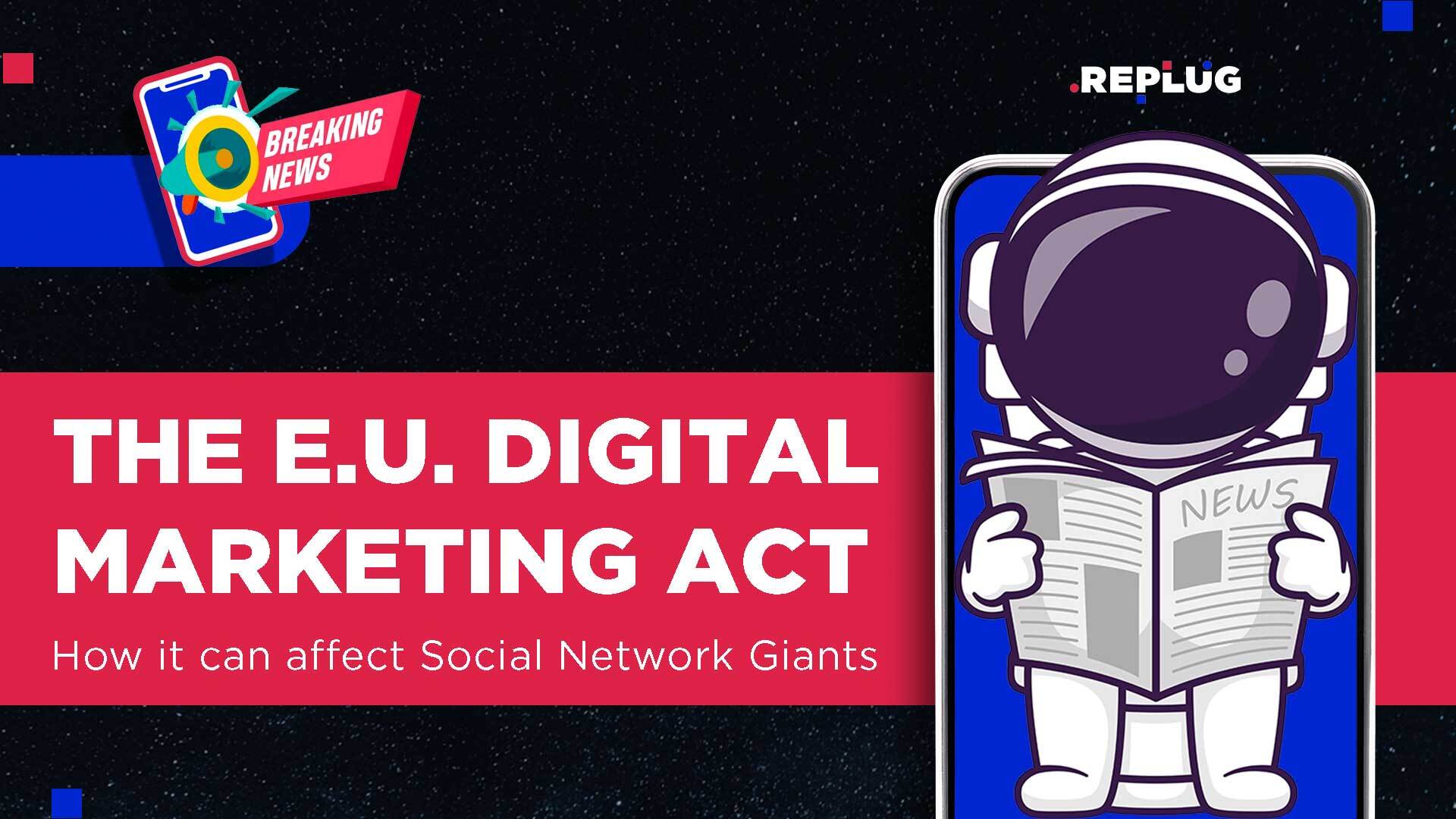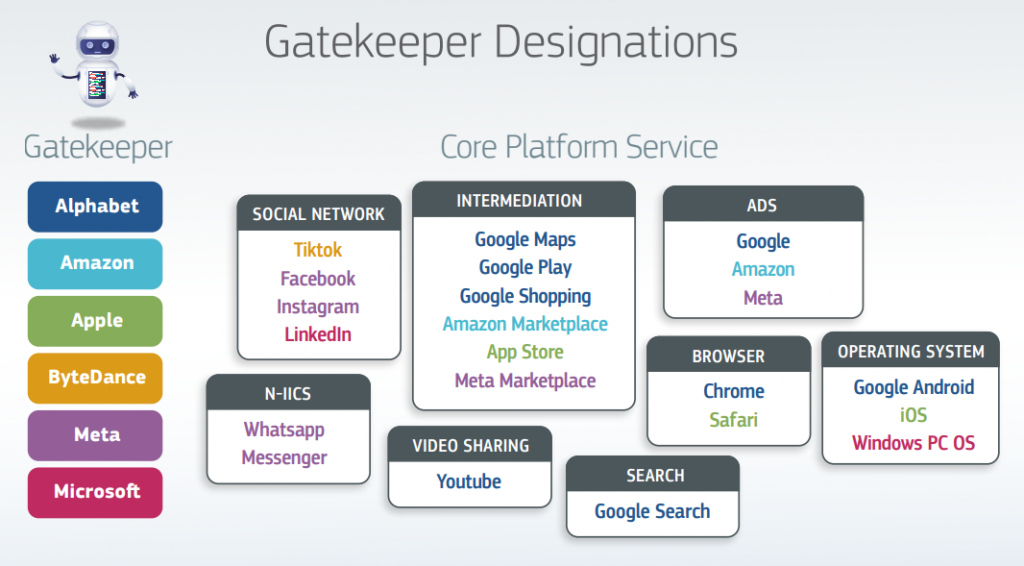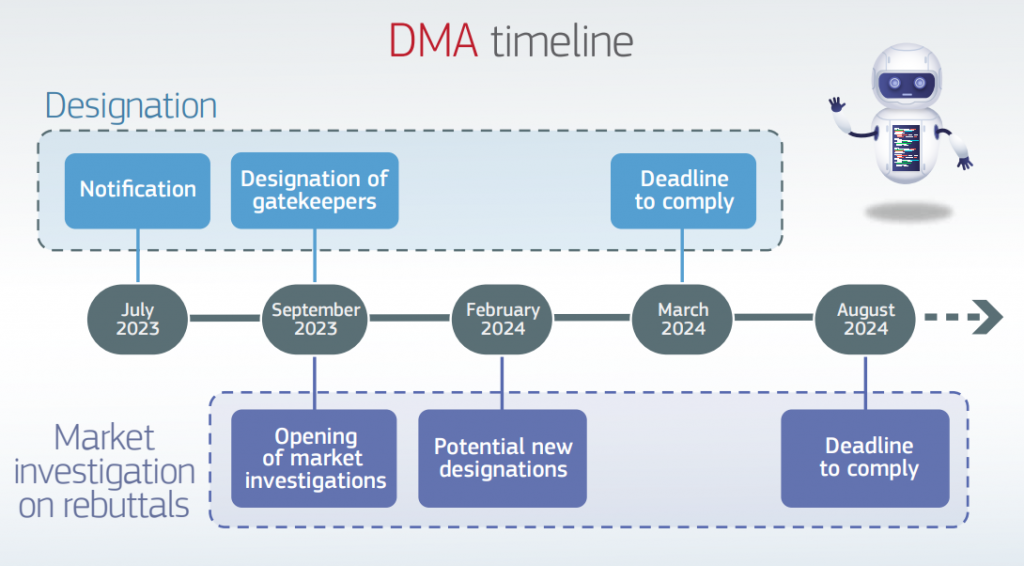EU Digital Markets Act: How It Can Affect Social Network Giants

In a significant development in the ongoing global conversation surrounding digital regulation, the European Union has taken a bold step by confirming that six major tech giants, predominantly hailing from the United States, will be subjected to the EU Digital Markets Act (DMA).
This move represents a pivotal moment in the EU’s efforts to rein in the power and influence of large tech companies and establish a fairer digital landscape for businesses and consumers alike.
The six tech giants in question, which include some of the most prominent names in the digital realm, are Google, Apple, Facebook (Meta Platforms), Amazon, Microsoft, and Twitter.
Such a decision is grounded in the European Union’s pursuit of addressing monopolistic practices, promoting competition, and ensuring that digital markets are transparent and fair.
What Is the DMA (Digital Markets Act)?
The DMA, or Digital Markets Act, is a legislative proposal introduced by the European Union to regulate the behavior of large tech companies in the digital marketplace.
It is part of the EU’s broader efforts to create a fair and competitive digital ecosystem, protect consumers, and curb the power of dominant tech giants. The DMA addresses various issues related to competition, platform dominance, and user rights in the digital space.
As the European Commission notes: “The DMA is one of the first regulatory tools to regulate the gatekeeper power of the largest digital companies comprehensively. The DMA complements, but does not change EU competition rules, which continue to apply fully.”
Who Will Be Affected?
The European Commission has unveiled the complete list of fundamental platform services that will be affected by the DMA:
- Social Networks: TikTok, Facebook, Instagram, LinkedIn
- Messaging services: WhatsApp, Messenger
- Intermediation: Google Maps, Google Play, Google Shopping, Amazon Marketplace, Apple’s App Store, Meta Marketplace
- Video Sharing: YouTube
- Advertising services: Google, Amazon, Meta
- Web Browsers: Chrome, Safari
- Search: Google Search
- Operating Systems: Android, iOS, Window


See more on Twitter (X) from Thierry Breton:
Key Implications for Social Network Giants and More
The six gatekeepers will now have six months to ensure full compliance with the DMA obligations for each of their designated core platform services.
1. Increased Competition
One of the primary aims of the Digital Markets Act is to foster a more competitive environment within the tech industry. By subjecting these major players to the DMA, the EU hopes to level the playing field for smaller businesses and startups, allowing them to compete more fairly.
In the case of social network giants like Facebook (Meta Platforms) and Twitter, this may lead to more innovation in the social media space, potentially offering users more diverse and user-centric platforms.
2. Stricter Regulation of Data Practices
The DMA also focuses on regulating how tech giants collect and use user data. For social network giants, who rely heavily on user data for targeted advertising and content recommendations, this could result in more stringent data protection measures.
Users may gain greater control over their data, and companies may be required to be more transparent about how they use personal information.


3. Fairer App Store Practices
Apple and Google, as the proprietors of two of the world’s largest app stores, will be under closer scrutiny regarding their app distribution and payment practices. The DMA aims to ensure these platforms do not abuse their dominance by imposing unfair restrictions or fees on app developers.
This could lead to more favorable conditions for app creators and potentially lower consumer costs.
4. Anti-Tying Provisions
The DMA also seeks to prevent tech giants from forcing users into bundled services or tying their products together in a way that stifles competition. For instance, a company like Amazon might be required to allow sellers to use their own shipping services rather than being tied to Amazon’s logistics.
This could lead to a more diverse marketplace and more choices for consumers.
5. Penalties and Fines
Companies found in violation of the Digital Markets Act could face substantial fines, which could serve as a strong deterrent against anti-competitive behavior. This will put pressure on these tech giants to comply with the new regulations, potentially leading to significant changes in their business practices.
6. Global Impact
As major players in the global tech industry, the actions taken by the EU in regulating these tech giants could have far-reaching consequences. Other regions and countries might take cues from the EU’s approach and consider similar regulatory measures, which could ultimately reshape the digital landscape globally.
Our Thoughts on the EU Digital Markets Act
Our co-founders, Luca and Lorenzo, note that “In the wake of the EU’s Digital Markets Act, we’re potentially entering a new era of digital advertising. The DMA’s stringent regulations on tech giants like Google and Apple are not merely compliance checkboxes but game-changers. This means unprecedented opportunities to leverage alternative App Stores and payment systems for advertisers, breaking free from the walled gardens that have long dominated the industry. The DMA is not just a regulatory act; it’s a catalyst for innovation and fair competition, leveling the playing field in a way that could reshape the digital marketing landscape for years to come.“
The EU’s decision to subject these six tech giants to the EU Digital Markets Act is a pivotal moment in the ongoing conversation about the regulation of the tech industry. It signals a commitment to fostering competition, protecting user data, and ensuring a fair and transparent digital marketplace.
While the full impact of these measures remains to be seen, it is clear that they have the potential to significantly reshape the practices of these tech giants, including social network giants like Facebook (Meta Platforms) and Twitter, in ways that may benefit both businesses and consumers.